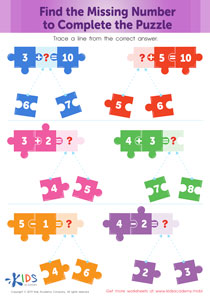Problem-Solving Skills Extra Challenge Addition Worksheets for 6-Year-Olds
4 filtered results
-
From - To
Boost your child's problem-solving abilities with our "Problem-Solving Skills Extra Challenge Addition Worksheets" designed specifically for 6-year-olds! These engaging worksheets offer a variety of challenging addition problems that help children develop critical thinking skills and boost their math confidence. Tailored to young learners, each activity encourages them to think creatively and apply their addition knowledge in real-life scenarios. Perfect for home or classroom use, these worksheets are a fun way to reinforce mathematical concepts while enhancing problem-solving skills. Give your child the tools they need to conquer math challenges with ease and confidence! Download now and watch them shine!
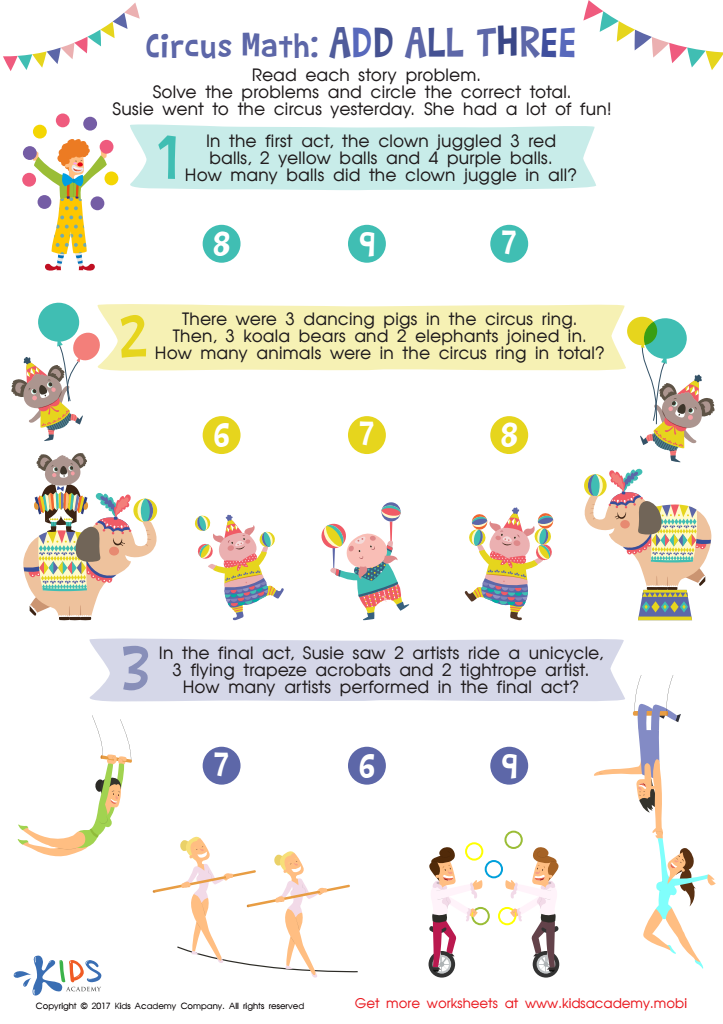

Circus Math Printable
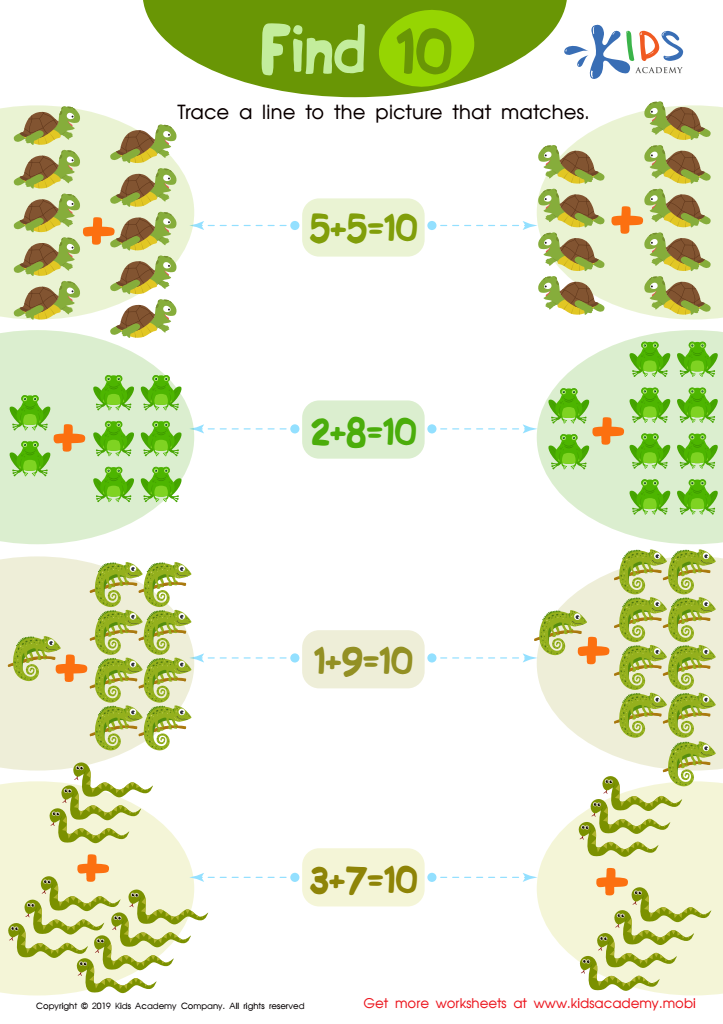

Find 10 Worksheet
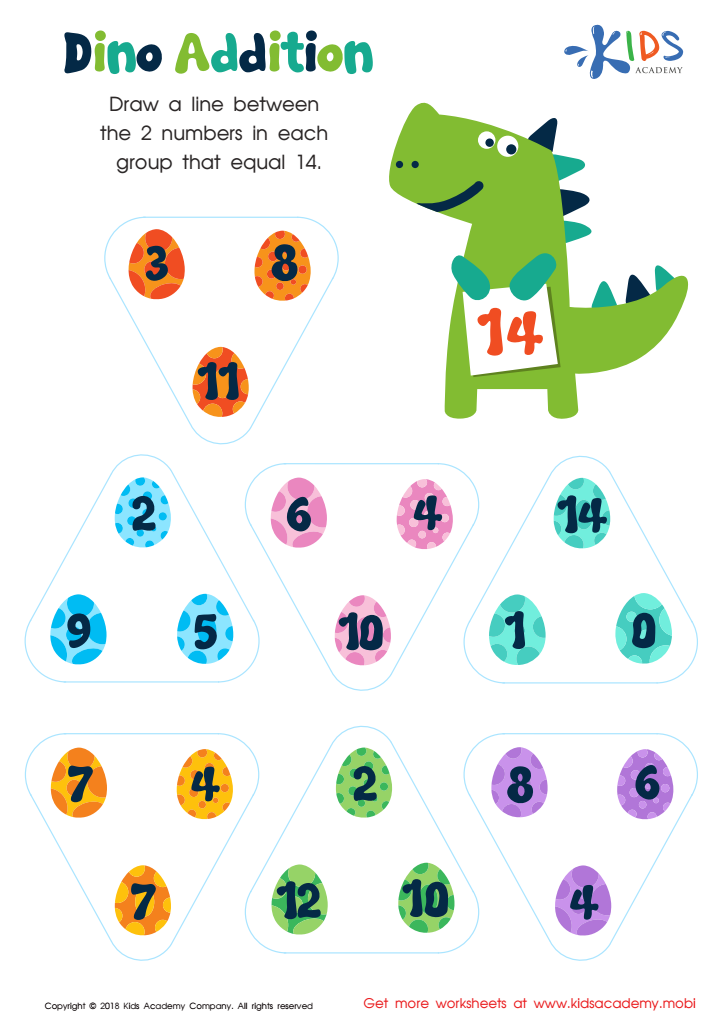

Dino Addition Worksheet
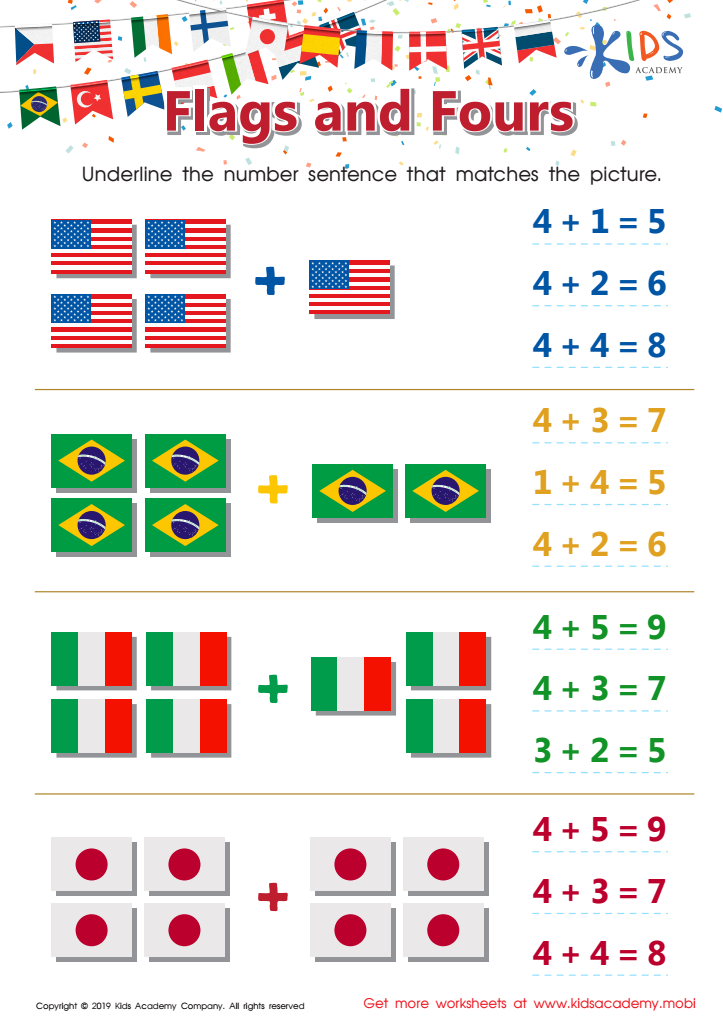

Flags and Fours Worksheet
Problem-solving skills are essential for children, beginning in early childhood, as they form the foundation for critical thinking, resilience, and independence. Specifically, in the context of extra challenge addition for 6-year-olds, engaging with more complex addition problems fosters cognitive development and builds mathematical understanding.
When parents and teachers nurture these skills, they enable children to approach challenges with confidence and an open mind. Challenging activities, such as extra challenge addition, stimulate curiosity and encourage students to explore multiple strategies for reaching solutions. This exploration not only enhances their mathematical abilities but upskills them in reasoning and logical thought processes that can be applied across various subjects and real-life scenarios.
Moreover, these skills can significantly boost a child’s self-esteem. When children successfully solve challenging problems, they gain a sense of achievement and motivation to tackle future difficulties. Finally, teamwork and collaboration often emerge during problem-solving activities, promoting social skills and communication.
Incorporating problem-solving tasks like creative and challenging addition is vital in early education. It prepares children for lifelong learning and equips them with the tools necessary to navigate a rapidly changing world. Therefore, parents and teachers should prioritize these activities to support holistic development.
 Assign to My Students
Assign to My Students









.jpg)

